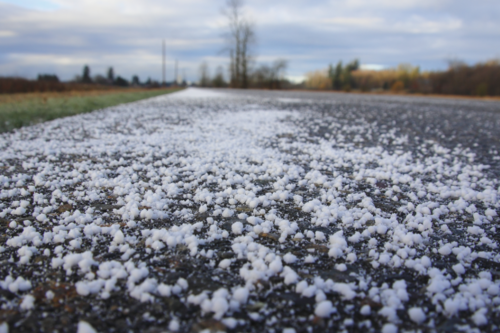Can Winter Salt Damage Your Lawn?

Do you use rock salt to de-ice your sidewalk or road?
Have you thought about how it can affect your lawn?
Even if you live in Michigan, you may not know that the city of Detroit sits on a rock salt mine. The mine was discovered in 1895 and spreads out over more than 1,500 acres. Easy access to rock salt makes it the primary de-icer used by Michigan cities, homeowners, and businessowners.
Slipping on the sidewalk can lead to serious injuries, and your driveway can be treacherous after a heavy snowfall. This is where rock salt and chemical de-icers come in handy by adding traction.
Unfortunately, rock salt has one big disadvantage: it can seriously damage your lawn, especially after repeated use in the winter. When rock salt sits on your lawn, it draws moisture out of the grass and soil. If it stays there long enough, it can actually upset the chemistry of the soil.
Here are three simple ways you can protect your lawn:
- Only spread rock salt on paved areas (and be careful when you throw salt using a spreader).
- Use a short silt fence guard around your grass to keep salt and melted runoff from spilling into your lawn.
- Use de-icing alternatives, such as sand or calcium magnesium acetate (CMA).
Prepare for 2024 with Livingston County Professional Lawn Care Companies
Whether or not your lawn gets damaged by de-icers this winter, hiring one of Livingston County's professional lawn care companies is one of the best things you can do to ensure it comes back healthy in the spring. To get a head start on spring lawn care with Ever So Green, call 517-540-1100 or request a quote here.




